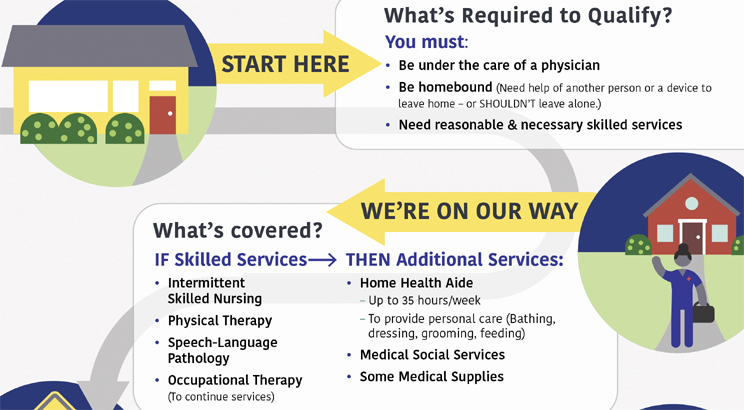
Whether you're a consumer, a doctor, or a hospice professional, there are several palliative care blogs that you should follow. These sites provide information, commentary, guidance, and support for advanced serious illness. GeriPal (a free-thinking forum) and Get Pallative Care (which sheds light and provides resources to consumers) are just two of the many.
GeriPal is a forum for discussion and recent news. It also has a section dedicated to freethinking commentary. There are many articles about the death and life of hospice employees, as well as the importance of obituaries and the meaning of photos. You can also find articles on a woman's experiences with cancer and death, as well as a doctor's perspective on spiritual issues at the final stages of life. A map on the site shows you where palliative services are available in your region.
A podcast series called Months to Live is available on the New York Times website. It focuses on the promise of life extension. These programs also offer transcripts and audiotapes. You will also find a report on the cost to heal, as well as information about philanthropy. There is also a blog that discusses bioethics.
Pallimed is another palliative-care blog. It tracks notable articles in palliative healthcare. You can read about the journey of a patient with lung cancer and who becomes a hospice nurse, or watch short films about a woman with mystery illnesses. You can also find information about the radiotherapy suite at a cancer center. This 360-degree camera video shows a radiotherapy session from a patient's perspective.
Finally, visit the National Hospice and Palliative Care Organization’s Bioethics Blog for information on hospices and philanthropy. The site includes an interactive map of palliative care services in each state. You will also find information on a charity that provides financial aid to people with cancer. You can also read about Michelle Seaton, who writes articles for Journalist's Resource.
Hospice fraud is widespread and many of its practices are not sustainable. However, it is also a way for people to have the comfort of knowing they're getting the best care available. Many patients survive longer and recover.
FAQ
What is an infectious disease?
Infectious diseases are caused by germs, viruses or parasites. Infectious disease spreads quickly when people come in close proximity. You can get measles or mumps, rubella (German whooping cough), pertussis/whooping chives, rubella ("German measles"), measles), pertussis ("whooping cough"), rubella ("German measles"), chickenpox), strep thyme), hepatitis A/B, HIV/AIDS), herpes simplex viruses, syphilis, gonorrhea and chlamydia
What information should I have about immunizations
Immunization is the process by which a vaccine stimulates an immune response. The body produces antibodies (immunoglobulins), to protect itself against infection after receiving the vaccine.
Who is responsible in public health?
Public health is an issue that affects all levels of government. Local governments are responsible for roads, schools as well parks and recreation facilities. Laws and regulations regarding food safety and workplace safety are provided by the federal and state governments.
What should I know concerning vaccines
Vaccines offer a way to keep your body healthy and are extremely safe. Vaccines protect you from certain diseases. Vaccinations can be given at specific times throughout your childhood, adolescence, or adulthood. Your doctor will recommend when you should get vaccinated.
What should we know about health insurance
Keep track if you have any health insurance. If you have any questions, make sure to ask. Ask your provider to clarify it or call customer service.
When it comes to using your insurance, make sure you take advantage of the deductible. Your deductible represents the amount you will have to pay before your policy begins covering the rest.
Statistics
- Over the first twenty-five years of this transformation, government contributions to healthcare expenditures have dropped from 36% to 15%, with the burden of managing this decrease falling largely on patients. (en.wikipedia.org)
- The health share of the Gross domestic product (GDP) is expected to continue its upward trend, reaching 19.9 percent of GDP by 2025. (en.wikipedia.org)
- Foreign investment in hospitals—up to 70% ownership- has been encouraged as an incentive for privatization. (en.wikipedia.org)
- For the most part, that's true—over 80 percent of patients are over the age of 65. (rasmussen.edu)
- Consuming over 10 percent of [3] (en.wikipedia.org)
External Links
How To
What is the Healthcare Industry Value Chain
The entire healthcare industry value-chain includes all activities related to providing healthcare services to patients. This includes both the business processes in hospitals and clinics, as well the supply chains that connect them with other providers like doctors, pharmacists, insurers, manufacturers, wholesalers, distributors, etc. The final result is a continuum in care that begins with diagnosis, and ends with discharge.
There are four components to the value chain:
-
Business Processes – These are the tasks that individuals perform throughout the delivery of health care. For example, a physician might perform an examination, prescribe medication, and then send a prescription to a pharmacy for dispensing. Each step must always be done quickly and accurately.
-
Supply Chains - All the organizations involved in making sure that the right supplies reach the right people at the right time. One hospital may have many suppliers. This includes pharmacies and lab testing facilities as well as imaging centers and janitorial staff.
-
Networked Organizations (NO) - In order to coordinate the various entities, communication must exist between all parts of the system. Hospitals often have several departments. Each one has its own phone number and office. To ensure that everyone is up to date, every department will have a central point from which employees can access updates.
-
Information Technology Systems - IT plays a critical role in business process efficiency. It is essential to ensure that business processes run smoothly. Without IT, everything would be a mess. IT can also be used to integrate new technologies into a system. Doctors can connect to a secure network connection in order to integrate electronic medical records into their workflow.